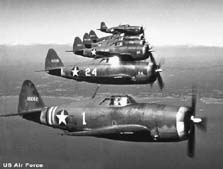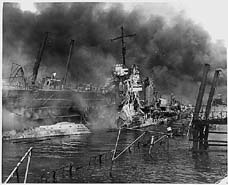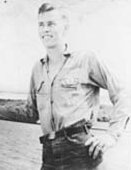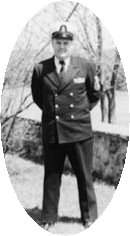Home → Corporations, Elections & Commissions → Elections & Voting → Voter Information → Vote in Honor of a Veteran → Table of Contents → World War II
World War II (1939-1945)
|
||
Wars In the old wars drum of hoofs and the beat of shod feet. |
||
In the old wars clutches of short swords and jabs into faces with spears.
|
 |
|
In the new wars kings quarreling and millions of men following. from War Poems |
||
Axis Powers Invade Europe September 1, 1939 – World War II begins when Germany, without a declaration of war, invades Poland. Britain and France declare war on Germany on September 3, 1939. All the members of the Commonwealth of Nations, except Ireland, follow suit. Spring, 1940 – Germany invades Denmark and Norway. German troops overrun Luxembourg, invade the Netherlands and Belgium and drive their armored columns to the English Channel. Great Britain resists the German attempt to bomb it into submission, but it is the only Allied power remaining. June 22, 1941 – Germany invades the Soviet Union and destroys much of European Russia. However, the harsh winter curtails the German sweep to Moscow. Great Britain and the Soviet Union become allies. |
||
| The U.S. Entry into the Second World War | ||
Initially, the United States' biggest concern is to protect commercial ships from attacks by German submarines. The United States formally protests the aggressive acts of Japan in China, Indochina, and Thailand. Despite attempts to maintain its neutrality, the United States enters the world conflict. December 7, 1941 – Without warning, Japan attacks Pearl Harbor. |
||
|
|
|
Approximately 2,400 military personnel are killed. A hurried dispatch from the ranking United States naval officer in Pearl Harbor provides the first official word of the attack: "Air Raid on Pearl Harbor. This is not a drill." |
||
|
||
Maine ties to Pearl Harbor bring the war home: |
||
|
||
|
|
|
|
||
|
||
|
|
|
The entire text of President Roosevelt's speech follows: Yesterday, December 7, 1941 – a date which will live in infamy – the United States of America was suddenly and deliberately attacked by naval and air forces of the Empire of Japan. The United States was at peace with that nation and, at the solicitation of Japan, was still in conversation with the government and its emperor looking toward the maintenance of peace in the Pacific. Indeed, one hour after Japanese air squadrons had commenced bombing in Oahu, the Japanese Ambassador to the United States and his colleagues delivered to the Secretary of State a formal reply to a recent American message. While this reply stated that it seemed useless to continue the existing diplomatic negotiations, it contained no threat or hint of war or armed attack. It will be recorded that the distance of Hawaii from Japan makes it obvious that the attack was deliberately planned many days or even weeks ago. During the intervening time, the Japanese government has deliberately sought to deceive the United States by false statements and expressions of hope for continued peace. The attack yesterday on the Hawaiian islands has caused severe damage to American naval and military forces. Very many American lives have been lost. In addition, American ships have been reported on the high seas between San Francisco and Honolulu. Yesterday, the Japanese government also launched an attack against Malaya. Last night, Japanese forces attacked Hong Kong. Last night, Japanese forces attacked Guam. Last night, Japanese forces attacked the Philippine Islands. Last night, the Japanese attacked Wake Island. This morning, the Japanese attacked Midway Island. Japan has, therefore, undertaken a surprise offensive extending throughout the Pacific area. The facts of yesterday speak for themselves. The people of the United States have already formed their opinions and well understand the implications to the very life and safety of our nation. As commander in chief of the Army and Navy, I have directed that all measures be taken for our defense. Always will we remember the character of the onslaught against us. No matter how long it may take us to overcome this premeditated invasion, the American people in their righteous might will win through to absolute victory. I believe I interpret the will of the Congress and of the people when I assert that we will not only defend ourselves to the uttermost, but will make very certain that this form of treachery shall never endanger us again. Hostilities exist. There is no blinking at the fact that our people, our territory and our interests are in grave danger. With confidence in our armed forces – with unbounding determination of our people – we will gain the inevitable triumph – so help us God. I ask that the Congress declare that since the unprovoked and dastardly attack by Japan on Sunday, December 7, a state of war has existed between the United States and the Japanese Empire." President Franklin D. Roosevelt |
||
Additional Tributes Submitted Online |
||
Previous Section | Table of Contents | Next Section


